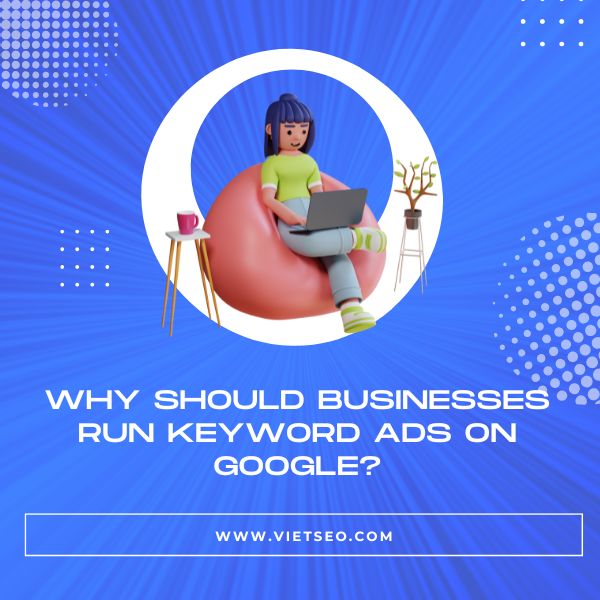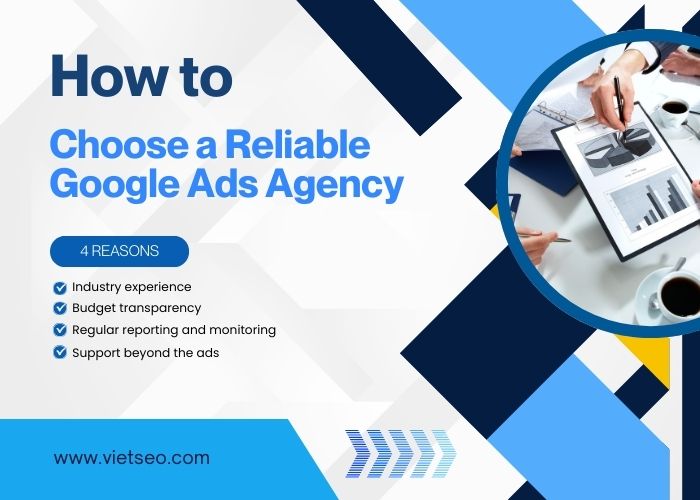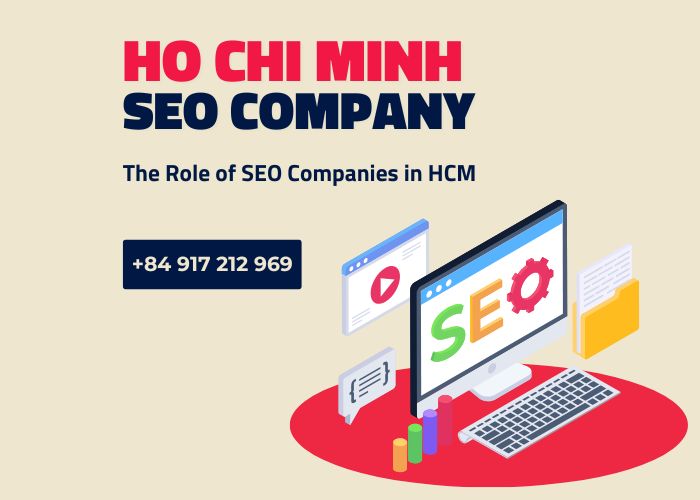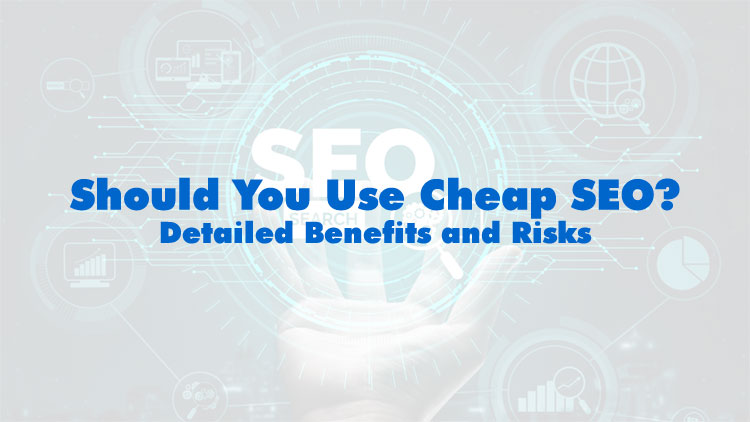Google Keyword Advertising: Paid Ads (PPC) vs. Organic SEO – Which Is Better?
Why Should Businesses Run Keyword Ads on Google?
Google keyword advertising is one of the most effective promotional channels available today. It allows businesses to connect with the right audience exactly when they’re searching for products or services, which not only improves conversion rates but also drives revenue growth in a short period of time.
Here’s why running keyword ads is such a smart choice for businesses of all sizes—from local shops to large corporations:
-
Reach customers at the right moment
Unlike traditional advertising where you push messages to people who may not be interested, Google Ads shows your business to users who are actively searching for what you offer. That means these people already have a clear need or intent, which makes them far more likely to click, engage, and convert into paying customers.
-
Get visibility almost instantly
With SEO, you often need to wait months before seeing results. In contrast, keyword ads can start appearing on Google search results just a few hours after setup. This is especially useful for new businesses, seasonal promotions, or product launches where timing is critical.
-
Flexible and transparent budget control
Google Ads uses a pay-per-click (PPC) model, so you only pay when someone actually clicks on your ad. You can set a daily budget or allocate specific amounts to different campaigns, giving you complete control. Whether you want to spend a few hundred thousand VND per day or scale up to millions, the system is flexible enough to fit your budget.
-
Clear and measurable results
Every click and every conversion can be tracked. By linking Google Ads with Google Analytics, you’ll see exactly how your campaigns are performing—impressions, click-through rate (CTR), cost per click (CPC), conversions, and even ROI. This level of transparency allows you to quickly identify what’s working and optimize your campaigns for better performance.
-
Boost brand awareness while driving sales
Even when users don’t click, your ads still appear at the top of Google’s search results. This constant visibility helps build trust and keeps your brand in front of potential customers. Over time, people are more likely to remember your business and choose you when they’re ready to buy.
In short: Running keyword ads on Google is not just about getting traffic—it’s about reaching the right people, at the right time, with a budget you can control, and with results you can measure.
Paid Keyword Ads (Google Ads) vs. Organic SEO: Which Should You Choose?
When it comes to reaching customers through Google, businesses generally have two main options: running paid keyword ads (Google Ads) or investing in organic keyword optimization (SEO). Both approaches are designed to put your brand in front of people who are actively searching for your products or services, but they work in very different ways.
- Google Ads (Paid): You bid on keywords and pay each time someone clicks on your ad (Pay Per Click). This allows your business to appear at the top of search results almost immediately after launching a campaign.
- SEO (Organic): Instead of paying for each click, you optimize your website structure, content, and backlinks so that Google ranks your site naturally. This process usually takes more time, but the results can be more sustainable in the long run.
Each method has its own strengths and limitations. Google Ads gives you speed and guaranteed visibility, while SEO builds long-term credibility and cost efficiency. The right choice depends on your goals—whether you’re looking for quick traffic and immediate conversions, or sustainable growth and brand trust.
In this article, we’ll walk you through the key differences between SEO and Google Ads, so you can make the best decision for your business strategy.
1. Basic Concepts
| Method | Google Ads (PPC) | SEO (Organic) |
|---|---|---|
| Definition | Pay to display ads based on user search keywords | Optimize website to rank high in unpaid search results |
| Positioning | Top or bottom of the page, marked “Ad” | Below paid ads, in organic search results |
| Time to results | Fast – within a few hours after setup | Slow – usually 2–6 months depending on the industry |
2. Cost
Google Ads:
- You pay per click (PPC)
- Cost per click (CPC) varies by industry and keyword competition: ₫1,000 – ₫50,000/click
- Monthly costs are flexible, but ads stop showing when your budget runs out
SEO:
- You don’t pay per click, but you need long-term investment in:
- Quality content
- Website technical optimization (technical SEO)
- Backlinks
- SEO tools (Ahrefs, SEMrush, etc.)
SEO is more cost-effective in the long term, but requires consistent investment and patience.
3. Speed of Results
| Criteria | Google Ads | SEO |
|---|---|---|
| Time to see results | Same day | 1–6 months |
| Campaign testing | Very fast, easy A/B testing | Slow, difficult to adjust frequently |
| Best suited for | Quick campaigns, flash sales, events | Long-term branding, evergreen content |
4. Sustainability
- Google Ads: Paid advertising delivers immediate visibility, but only for as long as you continue funding the campaign. The moment your budget runs out or you stop paying, your ads vanish from search results, and so does the traffic they generate.
- SEO: With proper optimization—high-quality content, strong technical foundations, and consistent backlink building—your website can maintain its rankings on Google even if you pause investment for a while. As long as the content remains relevant and competitive, organic traffic continues to flow without additional cost per click.
That’s why SEO is often considered the more sustainable option. While Google Ads is perfect for generating quick results, SEO lays the foundation for long-term visibility, credibility, and consistent customer acquisition.
5. Click-Through Rate (CTR) & Trustworthiness
Many users trust organic results more than paid ads, as they consider ads to be "paid placements."
| Method | Average CTR |
|---|---|
| Google Ads | 1% – 5% |
| SEO (Top 3) | 20% – 30% |
Research shows that 70–80% of users skip ads and click on organic results when available.
6. Targeting & Control
| Criteria | Google Ads | SEO |
|---|---|---|
| Targeting accuracy | High – by location, device, schedule | Lower – relies on user search behavior |
| Content control | Flexible – full control over ad copy | Limited – depends on Google's algorithm |
| A/B testing | Easy and fast | Difficult and slow |
Google Ads is suitable for campaigns that require tight control and continuous performance tracking.
7. When to Use Each
| Business Goal | Recommended Method |
|---|---|
| Need instant customer leads | Google Ads |
| Long-term brand building | SEO |
| Limited budget but patient | SEO |
| Want detailed analytics and testing | Google Ads |
| Want full control over messaging | Google Ads |
8. Combining Google Ads & SEO – The Smartest Approach
Many businesses wonder whether they should choose Google Ads or SEO. In reality, the two are not competitors—they work best when combined. Each plays a different role in your overall digital marketing strategy:
- Google Ads is perfect for driving quick results. You can use it to boost short-term sales, promote time-sensitive offers, or highlight new and seasonal products. Ads put you at the top of search results almost instantly, ensuring you capture high-intent customers right away.
- SEO builds long-term visibility and trust. By optimizing your website and content, you create a steady flow of organic traffic that doesn’t rely solely on ad spend. Once you achieve strong rankings, you can continue reaping the benefits even if you slow down investment.
Example in action:
Imagine an electronics retailer. They run Google Ads for a keyword like “Toshiba fridge on sale” to attract shoppers who are ready to buy immediately. At the same time, they invest in SEO for a keyword such as “best energy-saving fridges 2025” to capture users still in the research phase. This dual strategy allows the store to reach potential customers at every stage of the buying journey—both those ready to purchase now and those comparing options for later.
In short, combining Google Ads with SEO ensures both instant results and sustainable growth, giving your business a balanced and resilient marketing strategy.
9. Summary Table
| Criteria | Google Ads | SEO |
|---|---|---|
| Long-term cost | High | Low |
| Speed of effectiveness | Fast | Slow |
| Sustainability | Low | High |
| Click-through rate (CTR) | Lower | Higher if ranked top 3 |
| User trust | Moderate | High |
| Optimization & testing | Flexible | Difficult to track directly |
| Best for | New business, quick wins | Established business, long-term strategy |
Keyword Advertising Services in HCMC & Binh Duong at Competitive Prices
If you want to grow your business quickly in the digital space, running keyword ads on Google is one of the most effective solutions. However, success depends heavily on expertise and proper campaign management. That’s why many companies choose to work with a professional advertising agency instead of trying to handle it alone.
1. Why hire a professional Google Ads agency?
A reliable agency brings more than just technical setup—they provide strategy and ongoing support to make sure every dollar spent delivers results:
- Proven experience: Specialists in keyword research, ad copywriting, and smart budget allocation.
- Tailored strategies: Each industry—whether retail, healthcare, education, or e-commerce—requires a different approach to maximize performance.
- Continuous monitoring: Campaigns are tracked, optimized, and adjusted in real time to reduce wasted spend.
- Clear reporting: Regular updates on clicks, conversions, and ROI help you see exactly where your money goes.
- Better efficiency: With expert management, businesses avoid common pitfalls and achieve stronger results at a lower overall cost.
2. Pricing overview in HCMC & Binh Duong
Currently, businesses in Ho Chi Minh City and Binh Duong have two main options for building visibility on Google:
- Google Ads (Paid): Pay per click for instant top-of-page results. Budgets are flexible and can start small, making this a good choice for businesses that need immediate traffic and sales.
- SEO (Organic): Invest in optimizing your website and content to rank naturally. The initial cost may feel higher, and results take longer, but once achieved, rankings bring sustainable traffic without ongoing per-click fees.
Each method has its own advantages and cost structure. The right choice depends on your goals—whether you’re aiming for fast short-term growth or building a foundation for long-term success. Many businesses see the best results by combining both.
A. Google Ads Service Pricing
| Package | Price Range | Description |
|---|---|---|
| Starter (5–10 keywords) | 5 – 8 million VND/month | Ideal for small businesses with low-competition products |
| Standard (15–30 keywords) | 10 – 18 million VND/month | Includes Google Ads budget + service fee |
| Advanced (50+ keywords + remarketing) | 20 – 35 million VND/month | For competitive industries or cross-platform campaigns |
💡 Note: Pricing includes both click budget (CPC) and management service fee. Ads stop appearing when your budget ends.
B. Organic SEO Service Pricing
| SEO Package | Price Range | Description |
|---|---|---|
| Basic SEO (10–15 keywords) | 6 – 10 million VND/month | For new websites and low-competition markets |
| Full SEO (30+ keywords) | 12 – 20 million VND/month | Comprehensive optimization: on-page, content, technical, backlinks |
| Advanced SEO + Content Strategy | 25 – 40 million VND/month | For large businesses or highly competitive industries like real estate, law, healthcare |
Note: SEO is a long-term investment. After 3–6 months, your site may rank organically without ongoing ad spend.
Summary Table:
| Method | Google Ads (PPC) | SEO (Organic) |
|---|---|---|
| Fast results | Yes, within hours | No, takes 3–6 months |
| Pay per click | Yes (CPC) | No |
| Result sustainability | Requires budget to maintain | Long-lasting if well-optimized |
| Starting cost | From 5M VND/month | From 6M VND/month |
| Best for | Short-term campaigns | Long-term brand building |
5 Common Mistakes Businesses Make When Running Keyword Ads
Running Google Ads may sound simple, but many businesses waste a large part of their budget because of avoidable mistakes. Here are five of the most common pitfalls and how they can hurt your campaigns:
-
Choosing the wrong keywords
Many businesses select keywords that are too broad or generic, which don’t match the actual intent of potential customers.
- Example: Targeting “water purifier” is too vague—users might just be looking for information. A better choice would be “buy water purifier in Tan Phu,” which indicates a strong purchase intent and local relevance.
-
Ignoring negative keywords
Without setting negative keywords, your ads may appear for irrelevant searches. For instance, if you sell premium products, you don’t want your ads showing up for queries like “cheap” or “second-hand.” Failing to filter these out leads to wasted clicks and unnecessary spend.
-
Poor landing page experience
Even if your ad is well-targeted, it won’t convert if the landing page doesn’t deliver what users expect. Common issues include slow loading speed, confusing design, or lack of clear calls to action. The result? High bounce rates and wasted budget.
-
Lack of tracking and optimization
Google Ads isn’t a “set and forget” channel. Without proper conversion tracking and regular performance reviews, you won’t know which keywords, ads, or audiences are actually working. Businesses that fail to adjust campaigns based on data often overspend with little return.
-
Skipping remarketing campaigns
Most people don’t buy on their first visit. Remarketing allows you to re-engage visitors who showed interest but didn’t convert, reminding them of your brand and nudging them to return. Ignoring remarketing means missing out on one of the most cost-effective ways to increase conversions.
How to Choose a Reliable Google Ads Agency
Not all advertising agencies deliver the same level of service. Choosing the right partner can make the difference between wasting money and running highly profitable campaigns. Here are a few things you should look for when evaluating a Google Ads agency.
-
Industry experience
Ask whether the agency has worked with businesses in your field. Every industry has its own challenges and competitive landscape. For example, running ads for real estate, healthcare, or education requires a different strategy than for retail or local services. Request case studies or examples of successful campaigns they’ve managed in your sector.
-
Budget transparency
A trustworthy agency should provide a clear breakdown of costs. Make sure their quotation separates the actual Google Ads budget from the agency’s service fees. This prevents confusion and helps you see exactly how much money goes toward clicks versus management.
-
Regular reporting and monitoring
Campaigns should never be left on autopilot. Ask how often they provide reports and what’s included. At minimum, you should see metrics such as impressions, clicks, cost-per-click (CPC), conversion rates, and return on investment (ROI). An agency that actively monitors performance will also make adjustments along the way to improve results.
-
Support beyond the ads
Ads themselves are only one part of the equation. The landing page, visuals, and ad copy play a huge role in whether users convert. Some agencies only handle the ad setup and ignore the rest. A better agency will also guide you on content, visuals, and banner design—or at least coordinate with your team to make sure everything aligns for maximum effectiveness.
Conclusion
Keyword advertising on Google has become one of the most important marketing tools for businesses that want to grow revenue in today’s digital age. When campaigns are set up correctly and continuously optimized, Google Ads gives you the ability to reach the right customers at the right time, achieve higher conversion rates, and drive sales more effectively than many traditional channels.
The best part is that keyword advertising is no longer limited to big corporations with large budgets. Thanks to affordable services available in Ho Chi Minh City and Binh Duong, even small and medium-sized businesses can take advantage of Google Ads. With the right strategy and professional support, you can boost visibility, build brand credibility, and compete head-to-head with larger players in your industry.
In short, Google Ads isn’t just about clicks—it’s about creating real opportunities for growth and long-term success for your business.




